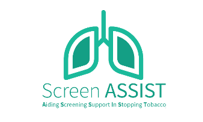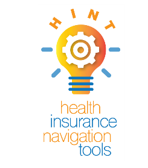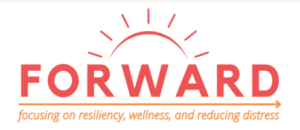Organizational Readiness and Engagement of Community Oncology Practices in Implementing Tobacco Use Assessment and Treatment (Supplement to the Smokefree Support Study 2.0)

Principal Investigator: Angela Wangari Walter, Ph.D., MPH
Project Director: Brett Goshe, Ph.D.
Study Sites: NCORP Community Sites and Minority/Underserved Community Sites
Study Coordinator: Gabbie Nicolosi, B.A.
Funding Source: NCI
Study Description:
This diversity supplement enhances the clinical trial for the parent grant (R01CA214427; MPIs Drs. E. Park & J. Ostroff MPIs) by examining organizational contexts that influence adoption of tobacco use assessment and treatment interventions; and identifying strategies to facilitate implementation of evidence-based tobacco treatment interventions in community cancer care settings.
Integrating Tobacco Treatment into Lung Screening at PHS (Screen ASSIST)

Principal Investigator(s): Elyse Park, Ph.D.; Nancy Rigotti, M.D.; Jennifer Haas, M.D.
Project Manager: Amy Wint, M.S.
Study Sites: BWH Faulkner, MGH Chelsea, MGH Danvers, NWH Main, MGH Waltham, MGH Main: Yawkey 6, MGH Main: Blake 2; currently adding Martha’s Vineyard (MVH) and may add Cooley Dickinson
Study Coordinator(s): Caylin Marotta, B.A.; Elise Noonan, B.A.; Cayley Bliss, B.A.
Funding Source: NIH / NCI RO1
Study Description:
The trial offers tobacco cessation treatment to smokers having a lung cancer screening test. It is designed to help us meet the U.S. Preventive Services Task Force recommendation to offer smoking cessation as part of lung cancer screening. Screen ASSIST will identify current smokers who schedule a lung cancer screening test and offer them participation in a smoking cessation study. All study participants will receive evidence-based cessation treatment at no cost. The goal is to identify the most effective combination of (1) tobacco cessation counseling (4 vs. 8 sessions); (2) nicotine replacement (2 vs. 8 weeks); and referral to a community-based resource to address social stresses that make quitting difficult (referral vs. no referral). Smoking status (primary outcome) will be measured at 6-month follow-up.
Understanding and Improving Health Insurance Coverage Among Long-Term Follow-Up Study Cohort Participants: (HINT I)

Principal Investigator(s): Elyse Park, Ph.D.; Giselle Perez, Ph.D.
Patient Navigator: Allyson Foor, B.A.
Study Sites: Affiliate St. Jude’s Cancer Research Center sites
Project Manager: Calli Mitchell, M.P.H.
Study Coordinator(s): Natalie Durieux, B.S.
Funding Source: American Cancer Society
Study Description:
Dr. Park and her colleagues published findings in the Journal of Clinical Oncology demonstrating that CCSS survivors, compared to siblings, were significantly more likely to be uninsured and to have difficulties obtaining health insurance. Given the current insurance landscape and the additional insurance burden that childhood cancer survivors face, the present study seeks to develop and pilot a health insurance navigation program targeted at feasibility and acceptability with survivors and improving health insurance literacy and ameliorating financial distress related to medical costs. The proposed health insurance navigation will involve 4 navigator-led health insurance navigation sessions. The study investigators propose that, compared to the control arm (who will receive a health insurance information guide, but will not receive the navigation intervention), participants in the intervention arm will have improved health insurance literacy and decreased financial distress related to medical costs.
Using a Virtual Health Insurance Navigation Pilot Program to Understand and Improve Health Insurance Coverage Among Survivors of Colorectal Cancer (HINT-C)

Principal Investigator(s): Elyse Park, Ph.D.; Giselle Perez, Ph.D.
Patient Navigator: Allyson Foor, B.A.
Study Sites: MGH
Project Manager: Calli Mitchell, M.P.H.
Study Coordinator(s): Natalie Durieux, B.S.
Funding Source: ECOG-ACRIN
Study Description:
This trial aims to assess the feasibility and acceptability of colorectal survivors approached and engaged in HINT and aims to assess the preliminary efficacy of HINT to improve 1) health insurance literacy and 2) financial burden related to medical cost concerns colorectal survivors. The study investigators propose that, compared to the control arm (who will receive a health insurance information guide, but will not receive the navigation intervention), participants in the HINT intervention arm will have improved health insurance literacy and decreased financial distress related to medical costs.
Assessing the Effect of Virtual Navigation Interventions to Improve Health Insurance Literacy and Decrease Financial Burden – A CCSS Randomized Trial: (HINT II)

Principal Investigator(s): Elyse Park, Ph.D.; Giselle Perez, Ph.D.
Patient Navigator: Allyson Foor, B.A.
Study Sites: Affiliate St. Jude’s Cancer Research Center sites
Project Manager: Calli Mitchell, M.P.H.
Study Coordinator: Natalie Durieux, B.S.
Funding Source: NCI
Study Description:
We are conducting a Type I hybrid effectiveness-implementation trial to assess the effectiveness of HINT-S compared to enhanced usual care (EUC) in promoting health insurance literacy, thus reducing worry, unmet health care needs, and financial consequences due to medical costs to improve care and long-term outcomes of childhood cancer survivors. While this synchronous intervention is individualized, an asynchronous intervention may be more cost-effective and scalable. Thus, we will also compare HINT-S to HINT-A, a prerecorded, asynchronous version of the 5 HINT-S navigator sessions. Potential participants will complete an electronic screen, consent, and baseline survey and then will be randomized to one of three treatment arm (HINT-S, HINT-A, or EUC). All participants will complete surveys at baseline, 6, 12, and an 18-month follow-up and will receive $20 for each survey. A rigorous implementation evaluation will be conducted.
Intervention for Fear of Cancer Recurrence and Uncertainty in Survivorship (IN FOCUS)

Principal Investigator: Daniel L. Hall, Ph.D.
Project Director: n/a
Study Sites: MGH and BIDMC (DF/HCC)
Study Coordinator: Michaela Markwart, B.A.
Funding Source: National Center for Complementary and Integrative Health
Study Description:
This is a 5-year study to adapt and pilot test a virtual, multimodal mind-body resiliency intervention (SMART-3RP) to help cancer survivors manage fear of recurrence (FOR). FOR is a common, highly distressing difficulty after diagnosis of a chronic and/or life- threatening illness that may increase risk for poorer clinical outcomes by influencing healthcare engagement (e.g., frequency of follow-up screening). Among cancer survivors, a population growing in prevalence, clinically impairing FOR is pervasive and can persist for years. Using qualitative and quantitative methods, this project will assess the feasibility and acceptability of an adapted mind-body intervention targeting FOR among cancer survivors and will inform the science of managing these fears and their clinical consequences among medical populations more broadly. Phase 1 of this study included focus groups and individual interviews with cancer survivors to identify targets for adaptation, including FOR-related coping and healthcare engagement patterns. Phase 2 is testing the feasibility of the adapted intervention in a pilot RCT and will explore preliminary effects on FOR and healthcare engagement outcomes.
An Adapted Telehealth Intervention for Insomnia Among Cancer Survivors (Survivorship Sleep Program)
Principal Investigator: Daniel L. Hall, Ph.D.
Project Director: n/a
Study Sites: MGH (DF/HCC)
Study Coordinator: Michaela Markwart, B.A.
Funding Source: MGH Institutional Research Grant
Study Description:
This is a study to test the feasibility, acceptability, and preliminary effects of a synchronous, virtual cognitive behavioral therapy for insomnia (CBT-I) program for cancer survivors. Insomnia is a significant and often unaddressed problem for adults treated for various types of cancer, with a prevalence rate (30-50%) approximately three times as high as in the general population. CBT-I is a safe, highly effective, and affordable treatment for insomnia that may be delivered to patients in as few as four sessions; however, attrition is common, and engaging patients may require a patient-centered approach.
Using qualitative and quantitative methods, this project aims to adapt CBT-I to address survivor late effects and unique sleep related concerns, via synchronous, virtual technology (e.g., Zoom). Phase 1 of this study included 10 individual interviews with cancer survivors with insomnia to identify perceived needs and preferences for virtually delivered CBT-I. Phase 2 tested the feasibility, acceptability, and preliminary efficacy of the Survivorship Sleep Program in a pilot RCT.
Tobacco Use In Peer recovery Study (TIPS)
Principal Investigator(s): Nancy Rigotti, M.D.; Eden Evins, M.D.
Project Director: Joanna Streck, Ph.D.
Study Sites: MGH
Study Coordinator: Michael Werner, B.A.
Funding Source: NIDA K12 DA043490
Study Description:
Mixed-methods cross-sectional study to examine tobacco use and treatment attitudes by SUD peer recovery coaches.
Remote-Delivered Mindfulness-Based Cognitive Therapy to Target Fear of Recurrence Among SCAD Survivors (Project Forward)

Principal Investigator(s): Christina Luberto, Ph.D.
Project Director: n/a
Study Site: MGH Mongan Institute
Study Coordinator: Joanna Cloutier, B.A.
Funding Source: NIH/NIA
Study Description:
Spontaneous coronary artery dissection (SCAD) is an important cause of cardiac events, primarily affecting young healthy women with no cardiovascular risk factors. Approximately half of SCAD survivors struggle with significant anxiety and fear of recurrence (FOR), which contributes to poor sleep and physical inactivity and, thereby, increased risk of recurrence. Mindfulness-Based Cognitive Therapy (MBCT) is an 8-week group intervention with evidence to improve FOR and health behaviors (sleep, physical activity), through psychological mechanisms that directly target key FOR processes. We adapted MBCT to target FOR, sleep, and physical activity in cardiac event survivors via group videoconferencing delivery (UpBeat-MBCT). In this open pilot trial, we will test the feasibility, acceptability, and changes in psychological and behavioral health variables in SCAD survivors participating in UpBeat-MBCT (N=16). The primary outcomes are feasibility and acceptability of the intervention and research procedures. Exploratory outcomes are changes in psychological and behavioral variables and their inter-correlations. This project is the first behavioral intervention for SCAD survivors and will provide preliminary data for an NIH Stage II efficacy trial to develop an accessible and efficacious intervention for a vulnerable group of SCAD survivors, with generalizability to survivors of other cardiac events.
Mindfulness-Based Cognitive Therapy Delivered Via Group Videoconferencing for Acute Coronary Syndrome Patients with Depressive Symptoms (UpBeat)

Principal Investigator(s): Christina Luberto, Ph.D.
Project Director: n/a
Study Site: MGH Mongan Institute
Study Coordinator: Joanna Cloutier, B.A.
Funding Source: NIH/NCCIH
Study Description:
Among the one million ACS patients in the U.S. each year (e.g., myocardial infarction, unstable angina), up to 45% have elevated depression symptoms. Even mild elevations in depression symptoms double the risk of mortality after ACS. Mindfulness-Based Cognitive Therapy (MBCT) could improve depression and cardiac health for ACS patients. MBCT is an 8-week manualized group intervention that combines CBT with mindfulness meditation to treat depression. The aim of this study is to establish, in a pilot RCT (approx. N=50 participants) with a time- and attention-matched health enhancement control, (a) the feasibility of the recruitment procedures, the feasibility and acceptability of the (b) MBCT and control interventions and (c) data collection procedures by group. Hypothesis 1a: Recruitment will be feasible as evidenced by screening, eligibility, and enrollment rates; (1b) the MBCT and control interventions and (1c) data collection procedures in both groups will be feasible and acceptable.
Proactive Psychiatry Consultation and Case Management for Patients with Cancer (BRIDGE)

Principal Investigator(s): Kelly Irwin, M.D., MPH
Project Director: Samar Shaqour, B.S.
Study Sites: MGH
Study Coordinator: Lauren Thomas, B.A.
Funding Source: NIH-NCI National Cancer Institute
Study Description:
Our overall goal in this program of research is to eliminate disparities in cancer mortality of patients with SMI. With this proposed single-site RCT, we will assess the preliminary efficacy of the PPC model and create an implementation strategy that can be tested in a larger scale , RO1-funded trial to investigate the effectiveness of PPC in improving cancer care for patients with SMI and their caregivers.
Bridging the Virtual Divide During COVID-19: Virtual Outreach Strategies
Principal Investigator(s): Kelly Irwin, M.D., MPH
Project Director: Emily Gorton, MPH
Study Sites: MGH
Study Coordinator(s): Samar Shaqour, B.S.; Lauren Thomas, B.A.
Funding Source: PCORI
Study Description:
In this study, we aim to 1) identify barriers and facilitators to engagement and use of technology among vulnerable older adults with SMI, their caregivers, and clinicians during the COVID-19 pandemic and 2) capture emerging research questions, create a shared agenda for patient-centered research, and co-design and disseminate a toolkit for virtual engagement for older adults with SMI.
Enhancing Resilience in Senior Living Community Residents: Pilot Study
Principal Investigator(s): Lara Traeger, Ph.D.
Project Director: n/a
Study Sites: Senior living communities in Maryland, Massachusetts, Texas, and Colorado
Study Coordinator(s): Reid Anctil, B.S.; Madeleine Scully, B.A.; Riley Psenka, B.S.
Funding Source: Davis Family Foundation
Study Description:
We conducted a single-arm study to evaluate a 9-session mind-body intervention among older adults residing in four senior living communities. We investigated intervention feasibility, acceptability and preliminary changes in resilience and flourishing. Community residents who consented to participate completed surveys before and after the intervention. We also conducted in-depth exit interviews with a subset of participants. The intervention was delivered by trained clinicians within each community. Results showed that the intervention was feasible and acceptable for community residents. Participants perceived value in practicing mind–body strategies in a group setting, and showed a pattern of improvements in resilience, flourishing, and intervention targets. Findings provided insights for mind–body interventions and recommendations for adaptations to late-in-life concerns and community settings.
Enhancing Resilience in Senior Living Community Residents II: Randomized Controlled Trial
Principal Investigator(s): Lara Traeger, Ph.D.
Project Director: n/a
Study Sites: Senior living communities in Virginia, New Jersey, Michigan, North Carolina, Maryland, Massachusetts, Texas, and Colorado
Study Coordinator(s): Reid Anctil, B.S.; Madeleine Scully, B.A.; Riley Psenka, B.S.
Funding Source: Davis Family Foundation
Study Description:
We are conducting a randomized controlled trial to assess the impact of a 9-session mind-body intervention on resiliency, flourishing, and other outcomes among older adults residing in senior living communities across the country. Community residents who consent to study participation will complete surveys at baseline, 3 months, and 6 months. After the baseline survey, participants will be randomly assigned to receive the mind-body intervention immediately or after 6 months. The intervention will be delivered by trained clinicians within each community. All other study procedures and clinical group supervision will be conducted by the study team. Outcomes will be compared between the two groups at 3 and 6 months.
A Stress Management and Resiliency Program for Adolescent and Young Adult Survivors (Bounce Back)
![]()
Principal Investigator: Giselle Perez, Ph.D.
Project Director: n/a
Study Sites: MGH
Study Coordinator: Michaela Markwart, B.A.
Funding Source: NCI
Study Description:
Bounce Back is a pilot randomized waitlist-control trial of a highly scalable virtual group program aimed at promoting stress management and coping among post-treatment adolescent and young adult cancer survivors. Bounce Back was adapted from an existing evidence-based resiliency program, the Stress Management and Relaxation Training Relaxation Response Resiliency Program.
Assessing the Impact of Health Beliefs and Psychological Factors on Lung Cancer Screening and Intentions in Urban and Rural Settings (Lung Screen ABC)
Principal Investigators: Gina Kruse, M.D.; Yuchiao Chang, Ph.D.; Elyse Park, Ph.D.
Site PI: Jordan Neil, Ph.D.
Study Sites: MGH; University of Oklahoma Health Sciences Center (OUHSC)
Study Coordinator: Reid Anctil, B.S.
Funding Source: National Comprehensive Cancer Network; AstraZeneca
Study Description:
The goal of this study is to understand the emotional and attitudinal impact of the COVID-19 pandemic and vaccination status on both lung cancer screening (LCS) intentions as well as LCS completion. This study will explore this in both rural and urban settings by investigating patient and provider level barriers to LCS in two geographically diverse healthcare systems in the context of COVID-19. First, this two-year study will work to understand patient health beliefs and psychological barriers and facilitators to lung cancer screening in the context of COVID-19 via cross-sectional, mixed-methods survey. Informed by the survey, investigators will create a community advisory board (CAB) with patient advocates and provider stakeholders representing rural and urban care settings. The CAB will aid in: reviewing survey data in order to identify patients at risk for not completing screenings; identifying the feasibility and acceptability of patient outreach strategies to address barriers and leverage facilitators; and creating a set of recommendations for modifications to provider guidelines and communication strategies for eligible patients. An AstraZeneca-affiliated lung cancer advocacy group, LUNGevity, will also aid in the development of patient-facing content and advocacy materials that will be disseminated through LUNGevity’s community network.
Promoting Resiliency and Mental Health Among Health Professional Workforce (Be Well Together)

Principal Investigator: Elyse Park, Ph.D.; Gaurdia Banister, Ph.D.
Project Director: n/a
Study Sites: Massachusetts League of Community Health Centers, Massachusetts General Hospital, and the Yvonne L. Munn Center for Nursing Research
Study Coordinator: Isabelle Miranda, B.S., B.A.
Funding Source: U.S. Health Resources and Services Administration (HRSA)
Study Description:
The prolonged strain of the COVID-19 pandemic has taken an emotional toll on healthcare workers who continuously face resource-constraints, perpetual uncertainty about the overall impact and duration of the pandemic, changes in clinical knowledge and guidelines, and the high rates of patient mortality and morbidity. The goals of this project are to (1) identify and implement evidence-based informed programs that promote resilience, wellness, and mental health among the health center workforce serving in rural and medically underserved areas of Massachusetts and (2) to enhance organizational cultures at these health centers to move towards a sustainable model for enhancing employee mental health and wellness.
Forward Together for Cancer Survivors and Their Caregivers (ForTe)
Principal Investigator(s): Elyse Park, Ph.D., MPH.; Areej El-Jawahri, M.D.
Project Director: Brett Goshe, Ph.D.
Study Sites: MGH
Study Coordinators: Isabelle Miranda, B.S., B.A., Joanna Cloutier, B.A.
Funding Source: National Cancer Institute
Study Description:
ForTe (Forward Together) is a randomized controlled trail assessing an evidence-based mind-body group resiliency treatment, the Stress Management and Resiliency Training-Relaxation Response Program (SMART-3RP) to intervene on 48 cancer survivors and their caregivers. Caregivers are a growing population who experience significant distress as they support patients throughout the cancer continuum. To ameliorate the deleterious health effects of chronic stress, there is a critical need to build caregivers’ resiliency and coping skills. The aims of the study are to determine the feasibility and acceptability of the SMART-3RP for cancer caregivers and survivors, to determine the preliminary efficacy of the MSART-3RP for improving resiliency in caregivers and survivors, and to explore effects of SMART-3RP on caregivers’ and survivors’ health care utilization.
Developing a Mind-Body Intervention to Promote Sexual Well-Being of Female GI Cancer Survivors
Principal Investigator(s): Elyse Park, Ph.D., M.P.H.; Lucy Finkelstein Fox, Ph.D.
Project Director: n/a
Study Site(s): MGH Cancer Center
Study Coordinator: Isabelle Miranda, B.S., B.A.
Funding Source: Osher Center for Integrative Medicine
Description: Many female colorectal and anal cancer survivors experience a unique, and often poor, sexual quality of life due to the long-term side effects of treatment and surgeries in the pelvic region. Sexual concerns which arise from these physical changes can have indirect effects on psychological and relational factors, such as body image, libido, and ability to enjoy intimacy. The aim of this study is to inform intervention development to optimize the application of existing mind body practices to meet female colorectal and anal cancer survivors’ specific needs for sexual well-being. Focus groups with clinicians and interviews with cancer survivors will identify areas of unmet need and inform our adaptation of existing mindfulness and cognitive-behavioral therapy (CBT) approaches into sexual well-being for GI cancer survivors. Ultimately, we will conduct an open pilot trial to establish feasibility and acceptability of this novel intervention.
Developing a Resiliency Intervention to Support Healthcare Workers Engaged in the Provision of HIV Care
Principal Investigator: Christina Psaros, Ph.D.
Project Director: N/A
Study Site(s): MatCH Research Unit, Durban, South Africa
Study Coordinator: Alexa Rivas, B.A.
Funding Source: National Institute of Mental Health (NIMH)
Description: South Africa (SA) has the largest HIV epidemic in the world, and nurses constitute the largest group of providers in SA’s healthcare system and are frontline treaters in HIV care. Nurses in the public sector experience extremely high levels of stress as a result of limited resources, hindering their ability to provide effective care – a situation that has been exacerbated by the ongoing COVID-19 pandemic. The aim of this study is to tailor the Relaxation Response Resiliency Program (3RP) to the needs of nurses providing HIV care in the public sector in SA to build resilience and reduce stress, and ultimately improve patient-related outcomes. Focus groups will be conducted to explore the ways in which the 3RP requires adaptation to meet the needs of this population. We will then adapt the intervention accordingly and conduct a small proof-of-concept study, followed by a randomized pilot study, to test the feasibility and acceptability of all study procedures, with the goal of developing a scalable intervention that could be used across similar settings worldwide to improve the treatment and care of persons living with HIV (PLWH).
Supplement to Screen ASSIST
Principal Investigator(s): Efren Flores
Project Director: n/a
Study Sites: Massachusetts General Hospital (MGH)
Study Coordinator: Lauren Thomas, B.A.
Funding Source: NCI
Study Description:
Lung cancer remains the leading cause of cancer-specific mortality in the U.S., and Hispanics experience worse lung cancer outcomes due to advanced stage at presentation. Lung cancer screening (LCS) can save many lives through early detection, but without increasing efforts to improve smoking status disclosure and documentation and tailored interventions to promote LCS uptake among Hispanic communities, disparities in lung cancer survival will persist. Therefore, this proposal aims to 1) elucidate barriers and facilitators to consistent identification and documentation of smoking status to promote LCS uptake; 2) assess feasibility, acceptability, and reach of the digital delivery of an educational video to promote LCS; 3) explore the effect of the digital delivery of the educational video to increase interest, intent, and scheduling of LCS uptake among eligible Hispanic patients.
The ECOG-ACRIN SUPPORT Trial: Multilevel Intervention to Improve Diverse Enrollment in Cancer Clinical Trials
Principal Investigator(s): Elyse Park, Ph.D.; Melissa Simon, M.D.
Project Director: Cayla Iwaniuk, MS
Study Sites: NCI Community Oncology Research Program (NCORP) Community Sites and Minority/Underserved Community Sites
Study Coordinator: n/a BUT STUDY NAVIGATOR is Irina Gonzalez, M.D.
Funding Source: NIH, NCI
Study Description:
Inadequate diversity in clinical trials is widely recognized as a significant contributing factor to health disparities experienced by racial/ethnic minorities and other diverse populations in the US. Clinical Trial participation among Black and Latino populations continues to fall short and the multitude of structural, clinical, physician, and patient barriers warrant multilevel interventions to enhance referral and enrollment of Black and Latino patients to NCI-supported CTs. The ECOG-ACRIN Cancer Research Group (EA), as an NCORP Research Base, has engaged community providers and researchers through a robust research portfolio that spans Cancer Control, Cancer Prevention, and Cancer Care Delivery. The multilevel EA SUPPORT intervention consists of a CT research literacy tool and CT Resource Navigators based at EA who will interface with patients, providers, and community oncology site staff to improve referral and enrollment of Black and Latino patients to CTs. Our specific aims are to: 1) Conduct preliminary assessments and refine the EA SUPPORT intervention with focus on community representation and input. 2) Conduct a Hybrid Type 1 cluster-randomized, roll-out effectiveness-implementation trial in 10 NCORP community oncology practice sites (with N= 500 Black and Latino patients with cancer) to evaluate the effectiveness of the EA SUPPORT intervention in improving Black and Latino patient referral and enrollment to NCI-supported CTs (primary outcomes) and participant and provider awareness and knowledge of CTs (secondary outcomes) while assessing implementation factors. 3) With the CUSP2CT Data, Evaluation, and Coordinating Center, conduct final site evaluation and disseminate the SUPPORT intervention to NCORP community oncology sites, research bases, and affiliated trial networks.
Adaptation of virtual group interventions to promote resilience among English and Spanish speaking parents of children with Learning and Attentional Disabilities (LAD)
Principal Investigator(s): Elyse Park, Ph.D.; Karen Kuhlthau, Ph.D.
Project Director: Brett Goshe, Ph.D.
Study Sites: Massachusetts Federation for Children with Special Needs
Study Coordinator: Isabelle Miranda
Funding Source: NIH, NCCIH
Study Description:
Parents of children with learning and attentional disabilities (LAD) face ongoing stress that leads to deleterious mental and physical health outcomes.. Partnering with the Federation for Children with Special Needs (FCSN) we will further adapt the SMART-LAD intervention in this R56 and the Health Education Program (HEP) attention matched control intervention with diverse parents (or guardians as parents) throughout Massachusetts, including BIPOC (Black, Indigenous, and People Of Color), Latinx, and low-income, rural, and other underserved groups. The aims are: A1: To conduct focus groups to elicit feedback on recruitment plan and tool, intervention delivery and timing, intervention content (SMART-LAD and HEP), and cultural and Spanish language modifications. Five live video-based focus groups will be run: 1 professional group, 2 English speaking parent groups (1 SMART-LAD and 1 HEP), and 2 Spanish speaking parent groups (1 SMART-LAD and 1 HEP). A2: To integrate focus group findings to develop adapted and translated treatments. A3: To conduct 4 pilot groups (SMART-LAD and HEP in English and Spanish) and finalize adapted and translated treatments